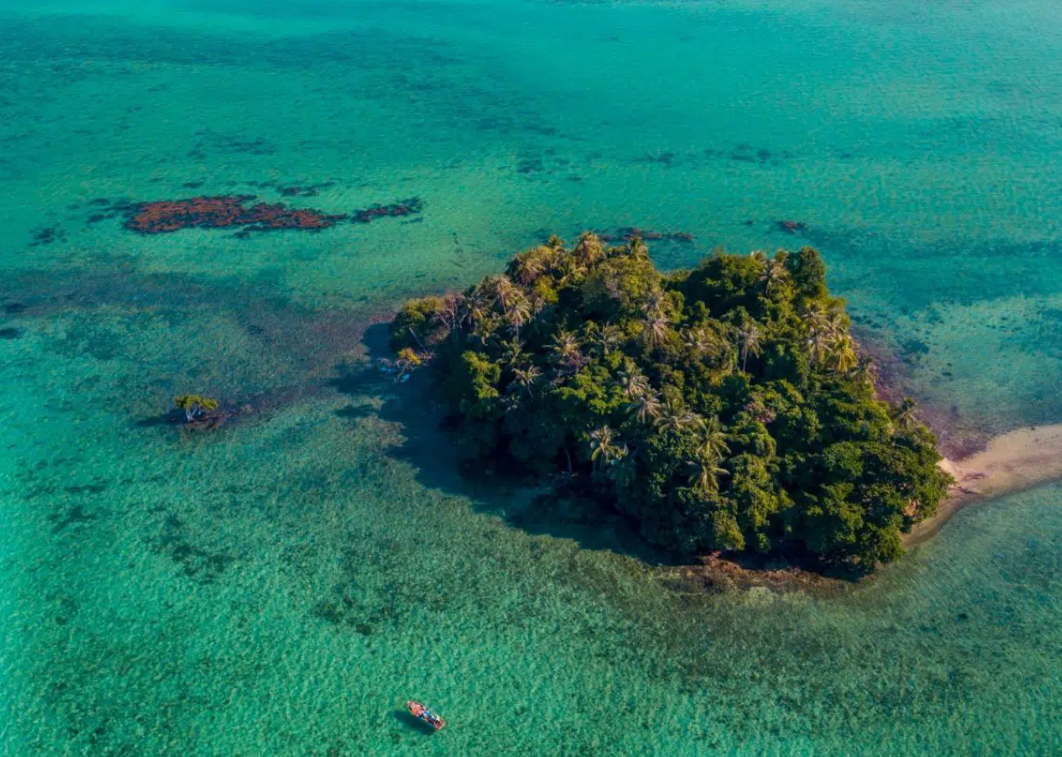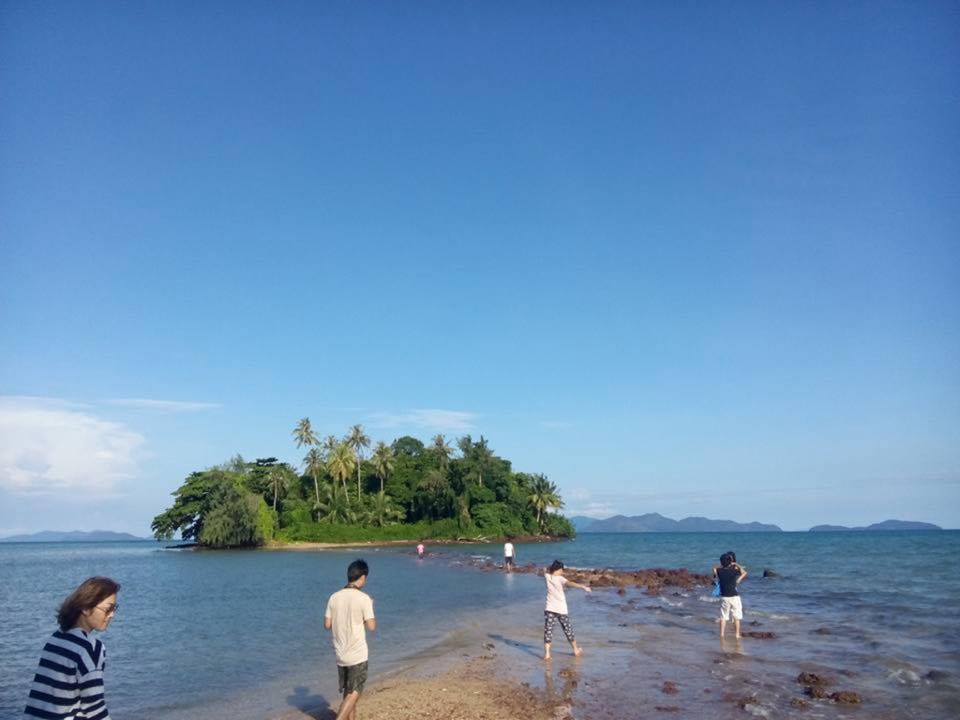
Many people associate the sea around Trat with the well-known islands of Koh Chang, Koh Kood, and Koh Mak, but the region actually boasts a wealth of stunning yet little-visited marine wonders, such as Koh Khai Hua Rao. The best time for traveling to Trat’s islands is between the months of November and May.
At one time, Koh Khai Hua Rao was just a tiny outcrop at the very end of Koh Nok Nork and Koh Nok Nai, which are situated behind Koh Kradad. This tiny island in the middle of the sea is home to a single towering tree. During low tide, you can cross from Koh Kradad to Koh Khai Hua Rao on foot. It’s definitely one of Trat’s unseen treasures. If you’re a big fan of the “Khai Hua Rao” cartoon, you should be familiar with the term “Central island tree” (Ton Taban), which refers to a tree that grows in the island's geographic center.
Koh Khai Hua Rao is unique in its terrain. It’s a tiny island, big enough for no more than two or three people to stand on at once, and it’s almost completely engulfed by the sea. There is a lone tree on the island that has stood tall and beautiful for quite some time, providing welcome shade to the “islanders,” that is, the few visitors who can stand or sit on the scrap of rock. This is a popular photo op because the area looks unusual and intrigues guests. Many people would like to witness this natural phenomenon for the first time, as it is truly a minor wonder of the world. If you want photos that look like you're on a deserted island, you should visit at high tide.
Those planning a trip to the island should bring along items that they don’t mind getting wet, shoes that are comfortable for walking on both rocks and sand, and a waterproof case for electronics.

At low tide, you can even walk to Koh Nok. You can walk from the end of Koh Kradad to Koh Nok Nai, which is about 100 meters away across some sand dunes that separate it from the sea, and vice versa; Koh Nok Nai also connects to Koh Nok Nork. There are both big and little rocks on the path. Careful footing is required owing to the presence of numerous small rocks on the otherwise level sands of the beach. Those carrying electronic devices in their hands, such as cameras or phones, need to exercise extra caution.
Koh Nok Nork and Koh Nok Nai are like twin islands. Villagers gave them these names because they saw many birds living in the trees on the island. Geologically, the island’s abundance of volcanic and laterite rocks, which can be found all over the island and the beach, is fascinating.
Travelers from Koh Mak and Koh Kradad frequently make the journey to Koh Khai Hua Rao and include Koh Khai Hua Rao as a stop along the way, because of the proximity of the three islands. The trip can be done in a single day. You can walk to Koa Khai Hua Rao only during low tide, so be careful not to get stranded. At high tide you'll need a boat to get there, or get off, and the water will come up to nearly the island’s center, so you can still get some stunning shots, regardless. As the sun sets, Koh Khai Hua Rao takes on an even more romantic hue.
